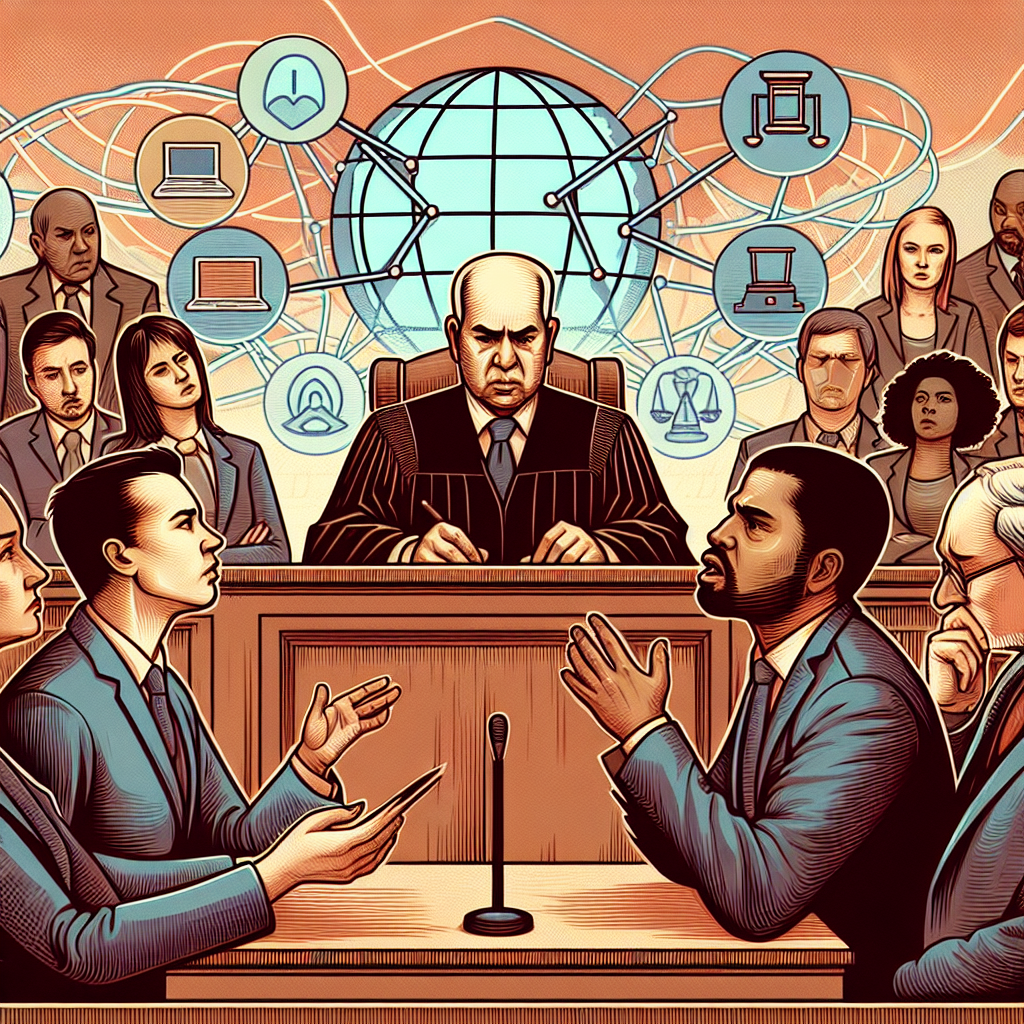Supreme Court Case Highlights Clash Over Internet Shutdowns in India
In a significant hearing on Tuesday, the Union government firmly opposed a Supreme Court petition calling for nationwide guidelines to limit internet shutdowns. The government argued that a one-size-fits-all ruling would be impractical, insisting that each instance of internet suspension should be examined individually. This poignant legal discussion arises amid growing concerns about the implications of such shutdowns on economic activity and fundamental rights.
The case was brought to the attention of the Supreme Court by the Software Freedom Law Centre (SFLC) back in 2022, highlighting the negative social, economic, and legal effects of frequent internet suspensions. In responses presented by advocate Kanu Agrawal on behalf of the Centre, it was emphasized that the landmark Anuradha Bhasin Vs Union of India (2020) ruling established that grievances concerning internet shutdowns need to be addressed on a case-by-case basis. He emphasized that the government has already issued directives to states and Union territories to follow principles of proportionality and periodic review when enacting internet shutdowns.
This situation has sharp relevance in ethical discussions about governance and the balance between public order and individual rights. The shutdowns, often implemented during crucial examinations to prevent cheating, spark an essential debate on their proportionality and necessity. Advocate Vrinda Grover, representing the SFLC, articulated that the wide-scale suspension of services leads to economic setbacks and infringes upon fundamental rights—concerns that reflect the biblical principle of valuing individual dignity and the interconnectedness of human community.
Echoing the sentiment found in Proverbs 14:31, "Whoever oppresses the poor shows contempt for their Maker, but whoever is kind to the needy honors God," these legal challenges push for reevaluation of how authorities exercise power. The recurring theme of compassion and responsibility in biblical teachings underscores the need to safeguard the vulnerable while pursuing collective security.
The Supreme Court, having heard arguments from both sides, has postponed the next session to January 29, 2025, allowing for additional submissions. The SFLC’s position is that current legal frameworks, notably the 2017 Temporary Suspension of Telecom Services Rules, can be misapplied, leading to blanket shutdowns without sufficient rationale—an issue that demands vigilance and reform.
As this case unfolds, it invites us to ponder the broader implications of governance decisions and their impacts on society. The shutdowns, while implemented under the pretext of protecting integrity in public examinations, raise essential questions: Are these measures truly just? Do they serve the greater good, or do they sacrifice the fundamental rights of citizens in the name of order?
In navigating this complex landscape, believers and leaders alike are reminded of the call to uphold dignity and community welfare. As we reflect on this legal battle, we are encouraged to advocate for solutions that honor both individual rights and societal responsibilities, fostering a society where justice and compassion prevail—aligning with the message that love transcends barriers, as taught by Jesus.
Ultimately, this dialogue surrounding internet shutdowns is more than a legal issue; it’s a reminder of the divine call to reflect God’s love in our interactions and governance. Let us contemplate how our actions echo the principles of justice, mercy, and love for one another as we engage in public discourse and community service.
Explore and dig up answers yourself with our BGodInspired Bible Tools! Be careful – each interaction is like a new treasure hunt… you can get lost for hours 🙂


